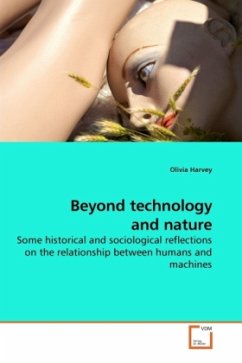Contemporary culture abounds with stories about how new technologies are radically altering human existence. In many respects it seems intuitively obvious that there is nothing new in this, and that new techniques for doing things change social relationships. Yet there is something strange about the most recent variations of how the social impact of new technologies are understood. New biotechnologies in particular are argued to have changed our daily lives so much so that what we take as the most fundamental features of human experience can no longer be assumed. The argument that new technologies have radical social consequences insists that the human subject is undergoing a fundamental transformation into something entirely different: the cyborg or posthuman. This book offers an exploration of some of the assumptions that underpin contemporary accounts of new technologies and their presumed impact on human experience.
Bitte wählen Sie Ihr Anliegen aus.
Rechnungen
Retourenschein anfordern
Bestellstatus
Storno








